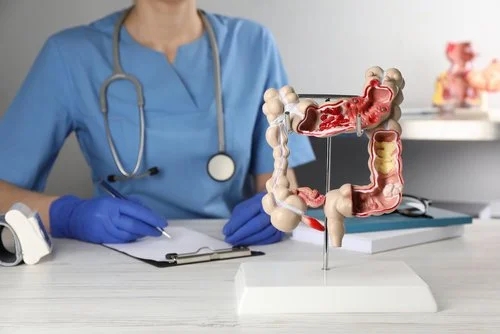How to Become a Gastroenterologist for Aspiring Doctors?
Gastroenterology is the discipline of medicine that involves the study and treatment of the digestive tract, liver, pancreas, bile duct, and gallbladder. Gastroenterologists are doctors specializing in the GI (gastrointestinal) tract. Some doctors also practice hepatology, a sub-genre of gastroenterology that deals with the liver. Some gastroenterologists are independent practitioners, while others are part of a group practice like us at Digestive Disease Specialists, Inc. If you have symptoms like constipation, diarrhea, ingestion, bleeding, and abdominal pain, your GP will refer you to a doctor of gastroenterology.
What a Gastroenterologist Can Do?
These doctors are specialized in treating your digestive related issues. They have responsibility to detect the root cause of the disease and initiate the treatment in the right path.
Some of the major works are:
• Examining the condition of the patients
• Selecting the diagnostic tests that the patients require
• Perform colonoscopy and endoscopy whenever required
• Performing CT Scan, MRIs. X-rays and Ultrasounds
• Performing surgery whenever needed
• Treating patients with diseases like gastritis, colitis, Crohn’s disease, ulcers, and colon cancer.
So, you want to become a gastroenterologist? This article deals specifically with the steps one will need to take to become a gastrointestinal doctor.
Step 1 - Earn Your Bachelor’s Degree
Entrance to medical school requires the students to have completed an undergraduate degree. There is no specific requirement for the major as long as you have the documents to support your claim of a well-rounded education. However, there are some prerequisite courses - biology, chemistry, physics, and English that the candidate must have completed. Some schools may also require course completion certificates for math, humanities, and social sciences as well.
Medical school admission boards often find it an appealing prospect when the students apply for volunteer programs at local hospitals or med clinics to form some prior idea of what working in the medical is like.
Step 2 - Sit for the MCAT
For entry to any med school in the US, you will need to take the Medical College Admission Test (MCAT). Each program at the school will have different score requirements. Most students sit for this examination in the junior year of their bachelor’s degree.
Step 3 - Complete Your Med School Degree
A med school degree is a four-year course that culminates in an M.D or Doctor of Medicine. The first two years of the program focus on classroom education, teaching subjects like anatomy, physiology, pharmacology, and medical ethics, among others. The last two years take a more hands-on approach, putting students out on the field to garner medical experience spanning multiple specialties.
Step 4 - Obtain a Medical License
At the end of the four-year medical program, all students will need to clear the passage of the US medical licensing examination. This exam is conducted by the National Board of Medical Examiners and the Federation of State Medical Boards. The licensing exam is carried out in three parts pertaining to the candidate's understanding of concepts, principles, and profession-specific skills. Every state also has separate licensing requirements - for example, to become a doctor in Oklahoma, you might need to follow a different set of procedures than in, say, California.
Step 5 - Complete Your Residentship
Once you have passed your licensing exam, you will be required to undergo a residency training program for up to 2-3 years. The residentship teaches the budding doctors more about the internal workings of the human body. This is also where you receive advanced training in gastroenterology.
Step 6 - Complete Your Gastroenterology Fellowship
Following the residency training, the individual will enroll in a fellowship in gastroenterology. This fellowship is going to consist of at least 18 months of in-depth patient-care experience. You will be a part of rigorous training in hepatic and GI diseases. Additionally, you will also be required to learn management practices for patients with chronic gastric ailments.
Step 7 - Obtain Certification from the Board
Even though board certification is not a mandatory requirement for practicing, the best gastroenterologists still choose to obtain certification from the American Board of Internal Medicine (ABIM). The ABIM only grants certificates after the individual has qualified in the exam. The candidate must also be in possession of a current medical license.
Step 8 - Continue Your Education
Often, doctors of gastroenterology (and other branches) are required to continue their education to keep renewing their licenses and certifications. Some of the advanced courses that a doctor can take to keep up with the latest developments in the field of gastrointestinal medicine include gastrointestinal oncology, esophageal disease, and nutrition.
Step 9 - Join a Professional Gastroenterologist’s Association
The final step is to finalize membership in a professional association of gastroenterology. An organization like this helps doctors to advance their careers through myriad networking opportunities. Professional organizations also provide them an opportunity to continue their education further.
Digestive Diseases, Inc. is a collective of the best gastroenterologists in Oklahoma City, the likes of what you can join once you complete all the steps and finally become a practicing gastroenterologist. For more details on our organization, visit the website!
**Disclaimer: This blog content does not offer a doctor's advice and creates no relationship between any patient and care provider.

